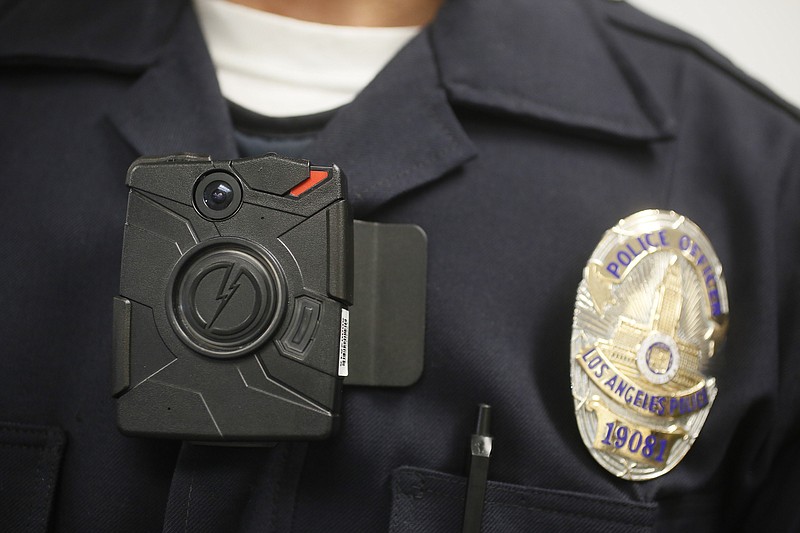Come fall, Chattanooga police are expected to be outfitted with body-worn cameras.
The City Council recently approved $141,000 to equip 250 patrol officers and investigators with the devices.
Police Chief Fred Fletcher said by fall, the department will establish its own policies governing the use of those devices. For the last 10 months, Chattanooga police officers have tested an allotment of 12 privately funded body-worn cameras using model policies established by the International Association of Chiefs of Police.
The testing period, which includes policies and procedures, as well as hardware, represents a "sweet spot" between the early adoption of body-worn cameras and departments who have not adopted them at all, Fletcher said.
Taking a deliberate approach allows the department to benefit from the evolution of "industry best practices, models policies, real guidelines that have been worked out across the nation and really represent an amalgamation of what most communities want, what most police departments want and what works best in the long run," he told council members last week.
Councilman Yusuf Hakeem asked what kind of safeguards existed concerning body cameras that have either malfunctioned or been turn turned off "at critical times when there's interactions with citizens," referring to events that have occurred "nationally."
"Sometimes they're off, for whatever reason," Hakeem said.
The policies address those concerns, Fletcher said.
"Actually, the technology addresses a good bit of that," Fletcher said.
If the equipment doesn't work properly, it will be taken out of service or documented that it does not work properly and submitted for repair, he said. Beyond that, the policy will require that the officer cannot turn off the camera without permission from a supervisor.
Most vendors supply body-worn cameras that incorporate a power-down process that requires the operator to hold the deactivation button for five seconds, Fletcher said.
Part of the ongoing conversation with the community also calls for understanding that a camera might not remain attached to an officer's collar during a lively physical encounter, he said.
"That's not misconduct or malfeasance, that's just the nature of physics and the reality of the struggle," Fletcher said. "That doesn't mean the officer did anything deliberate."
Fletcher also cautioned the community to understand the limitations of the story that a camera can tell.
"Just because it didn't happen on camera, doesn't mean it didn't happen," he said.
The department will hold officers accountable for their behavior, he said.
Fletcher also addressed privacy concerns, citing the ability of new software that allows the removal or blurring of people or other images when making copies of source recordings.
Contact Paul Leach at pleach@timesfreepress.com or 757-6481.
